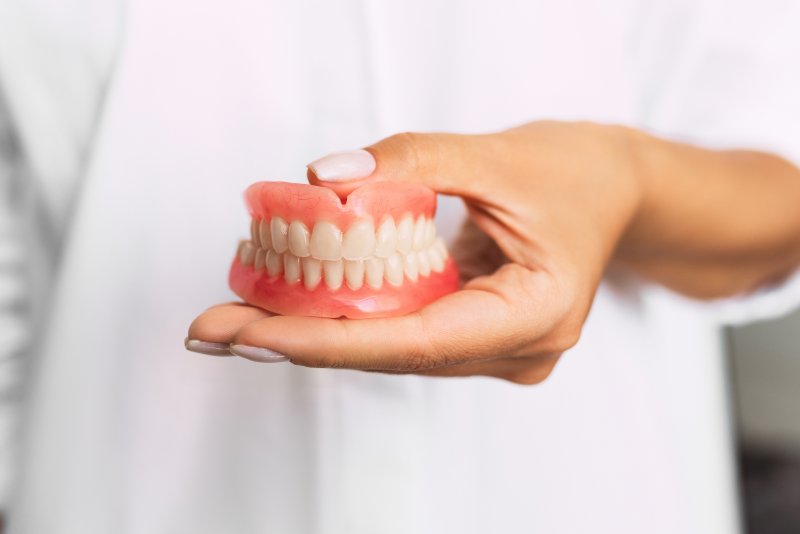
You’ve had your dentures in Charlottesville for a while now, and they’ve probably served you well over the years. Unfortunately, they tend to only last about seven to ten years until they need to be replaced. But how do you know when it’s time to get new ones? Keep reading to find out the top four tell-tale signs you should replace your dentures.
#1) Difficulty Speaking Clearly
One of the first signs you should consider replacing your dentures is if you have difficulty speaking. Your words might start sounding slurred or slushy, which tends to indicate your dentures are loosening. With a change in your speech pattern, it’s best to visit your dentist to either repair or replace your dentures.
#2) Dentures Feel Loose, Almost Falling Out
If your dentures were to fit you perfectly, you would have no issues eating or speaking. A well-fitted prosthetic would be able to remain on your gums with friction alone, allowing you to perform your daily oral activities. Once you feel your dentures slipping or loosening as you chew or talk, you can be sure they are very much in need of replacing. Using denture adhesive can temporarily help fit your dentures until you visit your dentist.
#3) Dentures Causing Discomfort/Harming Your Gums
Nothing says something is off more than the feeling of discomfort. Although your gums might naturally feel sensitive or sore after wearing dentures for long periods of time, you should think of replacing them if the tenderness continues. Several identifiable irritations are:
- Pressure sores in particular areas in the gums
- Difficulty or soreness when eating or chewing
- Inflammation or raw spots in the gum
Each of these are indications that your dentures are ill-fitted. You can help in these situations by maintaining a healthy oral hygiene, using a soft-bristled brush to clean your gums and teeth, but a visit to the dentist would address the underlying issues.
#4) Damaged or Discolored Dentures
Wearing chipped or damaged dentures can be detrimental to your oral health and activities. Not only will the dentures be loose, but they won’t be able to perform their natural functions. Whether the base of the dentures is broken, or the teeth are fractured, you’ll need to have them restored or changed all together. Additionally, though they might become yellowed or stained over time, discoloration of your dentures can indicate bacteria accumulation that puts you at risk of tooth decay or gum infection.
Your dentures are meant to help you live your life as healthy as possible, and now you’ll be able to recognize when you should get new ones. If you still have concerns on what you should do, remember your dentist is always a phone call away!
About the Author
Dr. Hal M. Lippard, DDS earned his Doctorate of Dental Surgery at the University of Tennessee College of Dentistry in Memphis. Providing personalized dentistry in a state-of-the-art office, Dr. Lippard (or Dr. Hal) offers a collection of treatments including restorative services for all your denture needs. If you want to know more or think you should replace your dentures, visit his website or call (434) 293-9311.